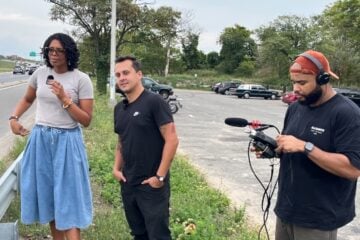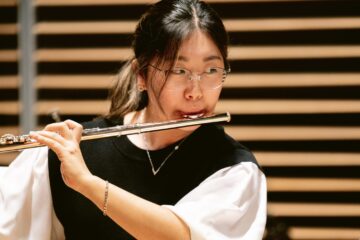New PBS initiatives will support filmmakers of color, offer early-career mentoring

PBS President Paula Kerger announced new funding and other initiatives for diverse filmmakers Tuesday at the start of PBS’ portion of the Television Critics Association annual winter press tour.
The announcement expanded on previous measures to increase funds and opportunities for filmmakers of color, building on initiatives announced last summer.
The new developments follow conversations Kerger had with new and mid-career filmmakers, as well as continued criticism that PBS has favored white filmmakers.
“In engaging in conversations with filmmakers, it was very clear that there were filmmakers who were having difficulty bringing their work forward,” Kerger said during a session held via Zoom.
Some of the problems are due to the way public broadcasting is decentralized, she said. “There are many paths into public broadcasting, so it’s confusing sometimes for filmmakers to figure out,” she said. They don’t know whether to go to their local station, a producing station, PBS, POV or Independent Lens.
Other conversations with mid-career filmmakers revealed that newcomers have many opportunities but getting a second or third film funded is much harder.
Rather than start a new unit to deal with these problems, Kerger turned to Firelight Media, headed by Stanley Nelson and Marcia Smith, who she said are already doing impressive work to help filmmakers.
“I think the most important aspect of all the conversations, particularly with diverse filmmakers, over this last year has been for us to listen and try to understand where there are barriers and how we can bring more work forward, how we can better support filmmakers no matter what stage of their professional career they are in,” Kerger said. As a result of the conversations and initiatives, “we are on a really good path,” she said.
One of the initiatives commits $3.6 million to Firelight Media over the next three years to advance the work of mid-career creators of color. Another initiative sets up an early-career mentorship program and a yearlong executive fellowship program that will embed filmmakers in existing projects.
Kerger also announced that PBS has joined TikTok with the handle @PBS. She said PBS shows have already been on TikTok for short film content “in a PBS kind of way, which is to say, full of entertainment, education and, when we really hit our mark, inspiration.”
Responding to a question, the PBS president said she had been surprised to learn this week of possible cuts to BBC funding beginning in the year 2027. Traditionally, BBC productions and co-productions have been among PBS’ most popular PBS programs.
“Obviously, we will be following it carefully as it goes through whatever process they go through in looking at their charter and thinking about funding,” Kerger said. “I have to believe there will be a lot of conversations there as they wrestle with funding going forward.”
In a session later in the day, judges on The Great American Recipe explained how the competitive cooking show, which premieres June 24 on PBS, differs from cooking contest shows elsewhere on TV.
“I think when you have not only great food but also the history of how it came about and why it’s so special to that person, it makes it all taste better,” said Tiffany Derry, a Dallas-based chef and one of the judges.
Added series executive producer Jilly Pearce, “This is a show that’s about love and family and connection. The recipes tell the story of who we are. That was sort of the main criteria that we were looking for when we were casting the show.”





